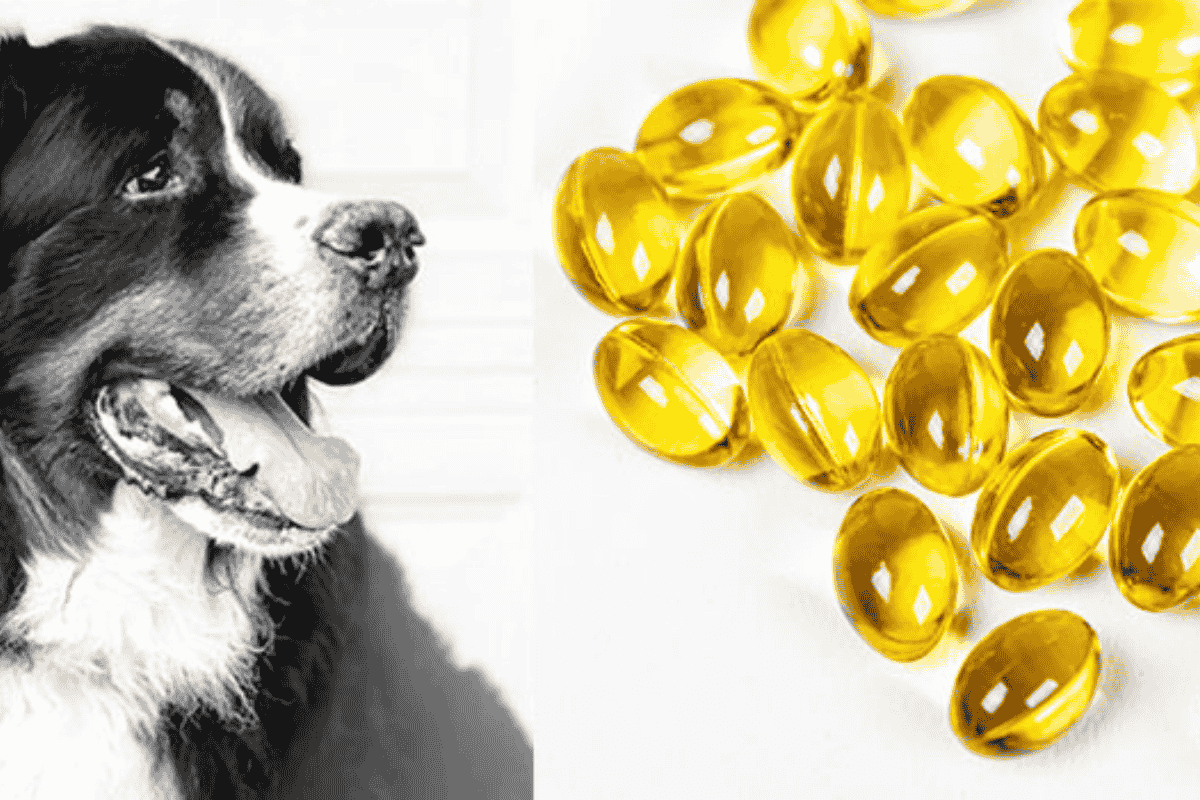Fish oil is a nutritional supplement derived from cold-water fish such as salmon, mackerel, and sardines. It is rich in omega-3 fatty acids, particularly EPA (eicosapentaenoic acid) and DHA (docosahexaenoic acid).
These compounds act as natural anti-inflammatories and immune system boosters, providing wide-ranging health benefits for dogs.
Beyond boosting overall health, fish oil has been linked to slowing tumor growth in certain cancers and improving cognitive function, especially in senior dogs.
Health Benefits of Fish Oil for Dogs
Protects the Heart
Fish oil supports heart health by reducing the risk of atrial fibrillation (an irregular heartbeat). It may also work as an anticoagulant, helping to prevent harmful blood clots in dogs with heart disease.
Relieves Dry, Flaky Skin
Dogs with allergies or dermatitis may benefit from fish oil’s anti-inflammatory properties, which reduce cytokine production and ease itching, redness, and irritation.
Slows Kidney Disease Progression
Fish oil can help lower high blood pressure, reduce protein loss in urine, and decrease the release of inflammatory substances that worsen kidney damage.
Aids Arthritic Joints
By reducing the production of inflammatory lipids, fish oil can make arthritic dogs more agile and comfortable, improving joint lubrication and mobility.
Improves Cognitive Function
DHA in fish oil supports brain health. Studies show puppies supplemented with DHA learn faster, while senior dogs show improved recognition and memory when receiving fish oil.
Lowers Blood Triglyceride Levels
High triglycerides can cause complications in dogs with pancreatitis, IBD, or heart disease. Fish oil supplementation helps reduce these dangerous fat levels in the blood.
Best Fish Oil Products for Dogs
There are many formulations of fish oil for dogs, including liquids, capsules, and chewable treats. The best option depends on your dog’s size, age, and health conditions. Always consult your veterinarian before starting supplementation.
Some vets may recommend allergy-support supplements containing fish oil, such as Vibeful Allergy and Immune Support Soft Chews.
How To Give Dogs Fish Oil
- Mix with food: Liquid fish oil can be added to wet meals.
- Capsules/Chews: Easy alternatives for picky eaters.
- With or without food: Both are safe, but giving with food may reduce stomach upset.
If your dog shows signs of nausea, drooling, or diarrhea, consult your vet. Full benefits may take a few weeks to appear, but gradual improvement is usually noticeable sooner.
Fish Oil Dosage for Dogs
Dosage depends on your dog’s weight and the product’s concentration. Most canine-specific fish oil supplements come with dosing instructions. Never exceed the recommended dose without veterinary approval.
Fish Oil Side Effects
Some dogs may experience gastrointestinal issues such as diarrhea or vomiting, especially at higher doses. If side effects occur:
- Stop supplementation.
- Contact your vet.
- Consider alternative omega-3 sources.












